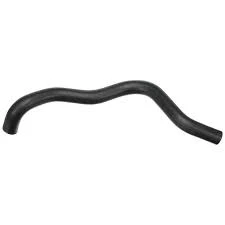Oil Coolant Hose Maintenance and Performance for Optimal Engine Efficiency
Nov . 27, 2024 19:15 Back to list
Oil Coolant Hose Maintenance and Performance for Optimal Engine Efficiency
Understanding Oil Coolant Hoses Importance and Functionality
The modern automotive engine is a marvel of engineering, designed to operate efficiently under a variety of conditions. One of the unsung heroes of this complex system is the oil coolant hose. While often overlooked, these hoses play a crucial role in maintaining optimal engine temperature and ensuring effective lubrication throughout the engine components. This article will delve into the importance, functionality, and maintenance of oil coolant hoses.
What Are Oil Coolant Hoses?
Oil coolant hoses are flexible tubes that transport oil and coolant between various components of an engine. Essentially, they allow the flow of engine oil, which lubricates the moving parts, while simultaneously facilitating the cooling process to prevent overheating. These hoses are typically made from durable materials such as rubber or silicone, resistant to the high temperatures and pressures found in an engine environment.
The Importance of Oil Coolant Hoses
1. Temperature Regulation One of the primary functions of oil coolant hoses is to help regulate the engine temperature. When the engine operates, it generates significant heat. Without a proper cooling mechanism, this heat could lead to engine failure. Oil coolant hoses assist in transferring heat away from the engine, ensuring it operates within safe temperature limits.
2. Enhanced Lubrication Oil plays a critical role in keeping engine parts lubricated. The oil collects heat and impurities as it travels through the engine, and oil coolant hoses help transport this heated oil to the oil cooler before it returns to the engine. This process helps reduce engine wear, extending the lifespan of the engine components.
3. Prevention of Overheating Overheating is one of the leading causes of engine damage. Oil coolant hoses contribute to preventing overheating by facilitating efficient oil and coolant circulation. By maintaining optimal temperatures, these hoses help prevent costly engine repairs and improve overall performance.
How Do Oil Coolant Hoses Work?
The functionality of oil coolant hoses is relatively straightforward. As the engine operates, the oil circulates through various components, absorbing heat generated by friction. This heated oil is then channeled through the oil coolant hoses to the oil cooler, where it is cooled down by transferring heat to the coolant. Once cooled, the oil is returned to the engine to continue lubricating the components.
oil coolant hose

The coolant, which is also circulated through a separate system, absorbs excess heat from the engine and travels to the radiator where it is cooled before returning to the engine. This continuous cycle maintains a balanced temperature within the engine.
Signs of Wear and Tear
Like any component, oil coolant hoses are subject to wear and tear over time. It is essential for vehicle owners to be vigilant in monitoring their hoses for signs of damage. Common indicators include
1. Cracks or Leaks Visible cracks, blisters, or leaks in the hoses can lead to a loss of coolant or oil, resulting in overheating or inadequate lubrication.
2. Hardening or Softening The material of the hoses can become hard or excessively soft due to prolonged exposure to heat and oil. This can compromise the hose's integrity and lead to failure.
3. Steam or Overheating If you notice steam rising from under the hood or your engine running hotter than normal, it could be a sign that the oil coolant hoses are not functioning properly.
Maintenance and Replacement
Regular maintenance of oil coolant hoses is vital for ensuring your vehicle runs smoothly. Inspect the hoses periodically for any signs of wear, and replace them at the first sign of damage. It is typically recommended to replace oil coolant hoses every 4-5 years, depending on the vehicle's usage and the manufacturer's guidelines.
Conclusion
Oil coolant hoses are a critical component of a vehicle's cooling and lubrication systems. Understanding their function and importance can help vehicle owners take proactive steps in maintenance and repair. By ensuring that these hoses are in good condition, you contribute to the longevity and efficiency of your engine, ultimately leading to a better performing vehicle on the road. Treat your oil coolant hoses with care, and they will help keep your engine running smoothly for miles to come.
